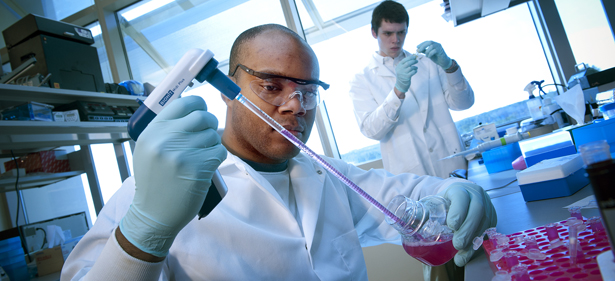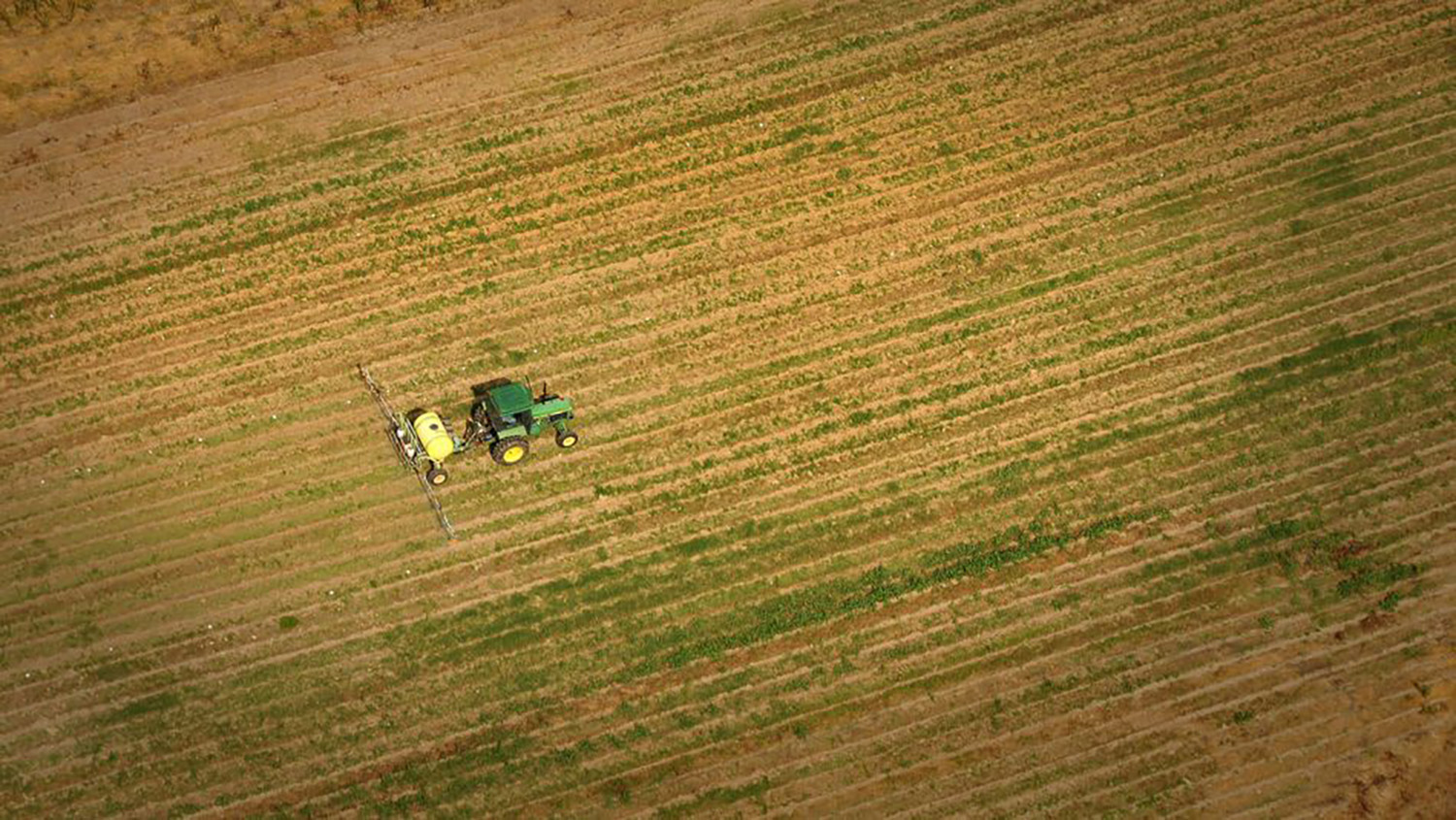Talking About Science: Why Do You Do What You Do?

I often find myself in conversations about how to communicate with the public (i.e., a non-expert audience) about science. One of the things I often bring up is the importance of explaining WHY a given piece of research was done. This not only helps people understand the work, it also helps them relate to it. People often respond to the enthusiasm that researchers have for their work.
I sometimes sum this up to researchers by saying: “If you can explain why you do what you do, you’re halfway home.”
I wanted to explore this idea a bit, and emailed two questions to a number of researchers I’ve worked with in the past: What do you study? Why do you study it? (i.e., why do you do what you do?)
 Rob Dunn, assistant professor of biology: I study the stories and histories (in other words, ecology and evolution) of the species that live around us in our daily lives. Sometimes these are bacteria. Other times they are ants, worms, plants or any of the many species we encounter in the hours between waking and going to sleep. Well, also the species we interact with in the hours in between.
Rob Dunn, assistant professor of biology: I study the stories and histories (in other words, ecology and evolution) of the species that live around us in our daily lives. Sometimes these are bacteria. Other times they are ants, worms, plants or any of the many species we encounter in the hours between waking and going to sleep. Well, also the species we interact with in the hours in between.
Why do I study this? I think it is because of my wife. I used to study species in rain forests. I studied rain forests in Costa Rica, Bolivia, Ghana, Australia and would come home from trips with pictures of the animals and plants I’d seen and liked. My wife, who is an anthropologist, would always tell me (in a nice way) that the picture would be more interesting if there was a human in it. A human who was part of the “story” I was capturing. I guess that, over the years, I’ve realized she was right about the pictures (and about most everything else). Most of the science that is most interesting to me (and, of course, my wife who hears endlessly about the things I do) is the science in which humans are part of the ecological or evolutionary story.
The great part about this is that it turns out my wife was on to something – and what interested her about wild species is what interests many people. And so I now study the species around us – because I find their stories fascinating, because my wife finds them interesting, and because the public (who ultimately pays my salary and funds much of my research in one way or another) finds them interesting, too.
That is the long answer. The short answer is that these species are really cool, and in studying them I get to do crazy things like study which species might have lived alongside Neanderthals in caves or examine specimens of animals that lived with ancient Egyptians.
 David Aspnes, professor of physics: Why do I do this? Because as a physicist I like to understand things, which is what physicists do, and because as an engineer I like to change the way people do things, which is what engineers do. Actually, as an applied physicist I do both.
David Aspnes, professor of physics: Why do I do this? Because as a physicist I like to understand things, which is what physicists do, and because as an engineer I like to change the way people do things, which is what engineers do. Actually, as an applied physicist I do both.
 Heather Patisaul, assistant professor of biology: I study how chemicals in the environment affect how our bodies develop. I do this because we have over 80,000 chemicals in our environment and our bodies and we don’t know if they are harmful or not. We should know that. And if they are harmful, we need to know how to make safer products.
Heather Patisaul, assistant professor of biology: I study how chemicals in the environment affect how our bodies develop. I do this because we have over 80,000 chemicals in our environment and our bodies and we don’t know if they are harmful or not. We should know that. And if they are harmful, we need to know how to make safer products.
 Michael Dickey, assistant professor of chemical and biomolecular engineering: I study ways to control and harness the properties of soft materials including polymers, gels and liquid metals. I am primarily interested in ways to shape and pattern these materials. I view my research team’s studies as a means to train, develop and empower students. On a more technical level, we hope our studies will enable radically new devices and applications that do not currently exist. In short, there is a thrill in inventing, studying and understanding things that have never been done before.
Michael Dickey, assistant professor of chemical and biomolecular engineering: I study ways to control and harness the properties of soft materials including polymers, gels and liquid metals. I am primarily interested in ways to shape and pattern these materials. I view my research team’s studies as a means to train, develop and empower students. On a more technical level, we hope our studies will enable radically new devices and applications that do not currently exist. In short, there is a thrill in inventing, studying and understanding things that have never been done before.
 Lee-Ann Jaykus, professor of food science: I am a food microbiologist. My group studies food-borne pathogens – in other words, microorganisms that cause disease when people consume contaminated foods. These microorganisms can enter the food chain in lots of different ways, and can cause diseases that range from mild diarrhea to life-threatening syndromes. We are particularly interested in food-borne viruses, with an emphasis on human noroviruses. These are considered the most important cause of acute vomiting and diarrhea worldwide, and the leading cause of food-borne disease in the United States.
Lee-Ann Jaykus, professor of food science: I am a food microbiologist. My group studies food-borne pathogens – in other words, microorganisms that cause disease when people consume contaminated foods. These microorganisms can enter the food chain in lots of different ways, and can cause diseases that range from mild diarrhea to life-threatening syndromes. We are particularly interested in food-borne viruses, with an emphasis on human noroviruses. These are considered the most important cause of acute vomiting and diarrhea worldwide, and the leading cause of food-borne disease in the United States.
Why do I study it? Food-borne disease is an important public health problem. By current estimates, there are about 9.4 million cases of food borne illness occurring in the U.S. annually, in association with 31 recognized pathogens; about four times the number if one were to add the impact of food-associated disease caused by poorly-characterized agents. Protecting the food supply from harmful microorganisms will reduce these numbers, meaning fewer people will get sick, and there will be less hospitalizations and deaths caused by contaminated foods. Basically, our group wants to assure that people can be confident that the food they eat is free of disease-causing microorganisms.
 Gerald LeBlanc, professor of environmental and molecular toxicology: I seek to understand how environmental pollutants interfere with hormone-mediated signaling processes. Why? Hormones mediate many incredibly important processes in all animals, including fetal development, growth and reproduction. Many environmental chemicals have the ability to interfere with normal hormone signaling resulting in disruptions in these important processes. Understanding how these chemicals act, and the exposure levels at which they act, aids regulatory agencies in ensuring that we and other animals are not exposed to the chemicals at harmful levels.
Gerald LeBlanc, professor of environmental and molecular toxicology: I seek to understand how environmental pollutants interfere with hormone-mediated signaling processes. Why? Hormones mediate many incredibly important processes in all animals, including fetal development, growth and reproduction. Many environmental chemicals have the ability to interfere with normal hormone signaling resulting in disruptions in these important processes. Understanding how these chemicals act, and the exposure levels at which they act, aids regulatory agencies in ensuring that we and other animals are not exposed to the chemicals at harmful levels.
 Dan Stancil, Alcoa Distinguished Professor of Electrical and Computer Engineering: The challenge to answering these questions is that at any given time I am working on several very different projects, and the answers would be different for each one. I could abstract some higher-level principles that would apply to all, but I don’t think such abstractions would be very engaging. So, here are two examples. One is driven more by the excitement of new and unexplored capability, and the other is driven more by the benefit that would be derived by the new technology.
Dan Stancil, Alcoa Distinguished Professor of Electrical and Computer Engineering: The challenge to answering these questions is that at any given time I am working on several very different projects, and the answers would be different for each one. I could abstract some higher-level principles that would apply to all, but I don’t think such abstractions would be very engaging. So, here are two examples. One is driven more by the excitement of new and unexplored capability, and the other is driven more by the benefit that would be derived by the new technology.
I am exploring how elementary particles such as neutrinos that do not interact strongly with matter can be used for communications. The interesting property of these particles for communication is that because of their weak interactions with matter, they pass straight through the Earth, and cannot be blocked or shielded. While some strategic applications such as communications with submarines have been proposed, the real excitement for me comes from the fact that we are at the very earliest stages of exploring what can be done experimentally. In this way, the present situation is a bit like the early days of radio – although a few interesting phenomena had been observed, no one had any idea of the full potential.
I am also studying how radio waves travel between moving vehicles on streets and highways. If vehicles could reliably communicate with each other, then accidents could be avoided by rapidly relaying information about hazards along the highway. The likelihood of more serious accidents could be reduced by relaying information about existing accidents, allowing drivers to be alerted in time to avoid additional collisions. Traffic delays could also be minimized by allowing drivers to exit the highway before getting stuck in delays caused by accidents. By studying how the radio waves propagate, we can make such systems more reliable, and consequently reduce accidents and delays.
- Categories:


